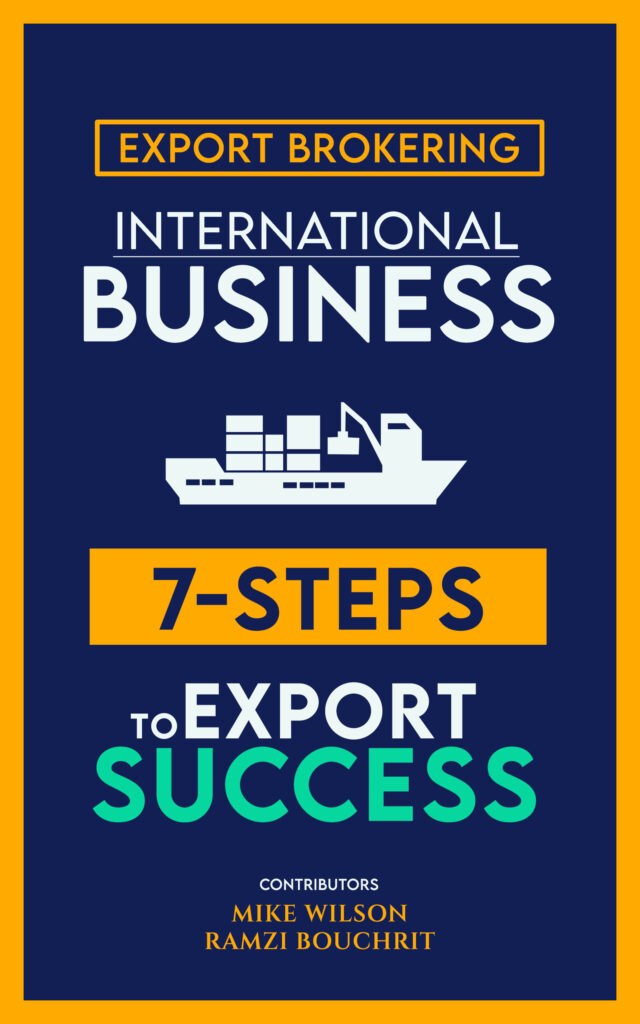Avoiding Common Pitfalls in International Trade Brokerage, learn more below!
| Table of Content |
|---|
| Introduction |
| H1: The Importance of Avoiding Common Pitfalls in International Trade Brokerage |
| H2: Inadequate Market Research and Analysis |
| H3: Understanding Market Trends and Demand |
| H3: Assessing Competitive Landscape |
| H2: Lack of Due Diligence |
| H3: Verifying Counterparty Credentials |
| H3: Assessing Legal and Regulatory Compliance |
| H2: Communication Barriers |
| H3: Overcoming Language and Cultural Differences |
| H3: Ensuring Clarity and Transparency |
| H2: Pricing Errors |
| H3: Proper Cost Analysis and Pricing Strategies |
| H3: Avoiding Overpricing or Underpricing |
| Conclusion |
| FAQs |
Introduction of Avoiding Common Pitfalls in International Trade Brokerage
International trade brokerage comes with its fair share of challenges. By being aware of and avoiding common pitfalls, trade brokers can navigate the complexities of the trade landscape more effectively and maximize their chances of success. In this article, we will explore some of the common pitfalls in international trade brokerage and strategies to mitigate associated risks.
In this step of “The Export Series” we will show you how to become a successful Import Export (International Trade) broker.

Mr. Ramzi Bouchrit (RB JV Group) has provided us with helpful information based on the different transactions he made with his business partners in the field of the International Trade aka import export. “The Export Series”.
H1: The Importance of Avoiding Common Pitfalls in International Trade Brokerage
Avoiding common pitfalls is crucial for trade brokers due to the following reasons:
- Mitigating Risks: Pitfalls can lead to financial losses, damage to reputation, and strained business relationships. Mitigating risks ensures smoother trade operations and enhances long-term prospects.
- Ensuring Success: By avoiding common pitfalls, trade brokers can position themselves for success, secure profitable deals, and build a strong foundation for sustainable growth.
H2: Inadequate Market Research and Analysis
Insufficient market research and analysis can lead to costly mistakes and missed opportunities. Trade brokers should prioritize the following:
H3: Understanding Market Trends and Demand
Thorough market research helps trade brokers identify emerging trends, evolving customer preferences, and demand patterns. This knowledge enables them to align their business strategies and capitalize on market opportunities.
H3: Assessing Competitive Landscape
Understanding the competitive landscape is essential to differentiate offerings, identify unique selling points, and develop effective marketing and pricing strategies. Trade brokers should conduct competitor analysis to stay ahead in the market.
H2: Lack of Due Diligence
Insufficient due diligence can expose trade brokers to various risks. To avoid this pitfall, consider the following:
H3: Verifying Counterparty Credentials
Trade brokers must conduct thorough due diligence on potential partners, suppliers, or buyers. This involves verifying their credibility, financial stability, track record, and reputation to ensure a reliable business relationship.
H3: Assessing Legal and Regulatory Compliance
Compliance with legal and regulatory requirements is critical to avoid legal issues and disruptions in trade operations. Trade brokers should assess the compliance status of their counterparties and ensure adherence to relevant laws and regulations.
H2: Communication Barriers
Effective communication is essential in international trade brokerage. Trade brokers should address the following communication challenges:
H3: Overcoming Language and Cultural Differences
Language barriers and cultural differences can hinder effective communication. Trade brokers should invest in language support, translation services, and cultural sensitivity training to bridge these gaps and foster better understanding.
H3: Ensuring Clarity and Transparency
Clear and transparent communication is vital to prevent misunderstandings, disputes, and delays in trade transactions. Trade brokers should emphasize clarity in documentation, pricing terms, and contractual obligations.
H2: Pricing Errors
Pricing errors can significantly impact profitability and competitiveness. To avoid this pitfall, trade brokers should focus on the following:
H3: Proper Cost Analysis and Pricing Strategies
Trade brokers should conduct a comprehensive cost analysis to determine accurate pricing. This includes considering production costs, transportation expenses, customs duties, and market demand.
H3: Avoiding Overpricing or Underpricing
Overpricing may deter potential buyers, while underpricing can lead to reduced profit margins. Trade brokers should strike a balance by setting competitive prices that reflect the value of the goods or services being traded.
Conclusion of Avoiding Common Pitfalls in International Trade Brokerage
By being aware of and proactively avoiding common pitfalls in international trade brokerage, trade brokers can enhance their chances of success. Thorough market research, due diligence, effective communication, and accurate pricing strategies are crucial for mitigating risks and ensuring profitable trade operations. By adopting these strategies, trade brokers can navigate the complex world of international trade with confidence and achieve their business objectives.
FAQs
Q1: What are the consequences of inadequate market research in trade brokerage?
A1: Inadequate market research can lead to missed opportunities, poor decision-making, and ineffective market positioning. Thorough research helps trade brokers understand market trends, customer demands, and competitive landscape, enabling them to make informed business choices.
Q2: How can trade brokers overcome communication barriers?
A2: Overcoming communication barriers involves investing in language support, translation services, and cultural sensitivity training. Effective communication ensures clarity, reduces misunderstandings, and fosters stronger business relationships.
Q3: Why is due diligence essential in international trade brokerage?
A3: Due diligence is crucial to verify the credibility, financial stability, and compliance of potential business partners. It helps trade brokers avoid scams, fraudulent activities, and legal issues that can jeopardize trade operations.
Q4: What are the risks of pricing errors in trade brokerage?
A4: Pricing errors can result in lost sales opportunities, reduced profit margins, and damaged relationships with buyers or suppliers. Accurate pricing strategies, based on proper cost analysis and market demand, are vital for trade brokers to maintain competitiveness and profitability.
Q5: How can trade brokers ensure successful trade operations?
A5: Trade brokers can ensure successful trade operations by conducting thorough market research, performing due diligence, maintaining effective communication, and implementing accurate pricing strategies. These measures minimize risks and maximize the potential for profitable trade endeavors.
Avoiding Common Pitfalls in International Trade Brokerage, learn more below!
| Table of Content |
|---|
| Introduction |
| H1: The Importance of Avoiding Common Pitfalls in International Trade Brokerage |
| H2: Inadequate Market Research and Analysis |
| H3: Understanding Market Trends and Demand |
| H3: Assessing Competitive Landscape |
| H2: Lack of Due Diligence |
| H3: Verifying Counterparty Credentials |
| H3: Assessing Legal and Regulatory Compliance |
| H2: Communication Barriers |
| H3: Overcoming Language and Cultural Differences |
| H3: Ensuring Clarity and Transparency |
| H2: Pricing Errors |
| H3: Proper Cost Analysis and Pricing Strategies |
| H3: Avoiding Overpricing or Underpricing |
| Conclusion |
| FAQs |
Introduction of Avoiding Common Pitfalls in International Trade Brokerage
International trade brokerage comes with its fair share of challenges. By being aware of and avoiding common pitfalls, trade brokers can navigate the complexities of the trade landscape more effectively and maximize their chances of success. In this article, we will explore some of the common pitfalls in international trade brokerage and strategies to mitigate associated risks.
In this step of “The Export Series” we will show you how to become a successful Import Export (International Trade) broker.

Mr. Ramzi Bouchrit (RB JV Group) has provided us with helpful information based on the different transactions he made with his business partners in the field of the International Trade aka import export. “The Export Series”.
H1: The Importance of Avoiding Common Pitfalls in International Trade Brokerage
Avoiding common pitfalls is crucial for trade brokers due to the following reasons:
- Mitigating Risks: Pitfalls can lead to financial losses, damage to reputation, and strained business relationships. Mitigating risks ensures smoother trade operations and enhances long-term prospects.
- Ensuring Success: By avoiding common pitfalls, trade brokers can position themselves for success, secure profitable deals, and build a strong foundation for sustainable growth.
H2: Inadequate Market Research and Analysis
Insufficient market research and analysis can lead to costly mistakes and missed opportunities. Trade brokers should prioritize the following:
H3: Understanding Market Trends and Demand
Thorough market research helps trade brokers identify emerging trends, evolving customer preferences, and demand patterns. This knowledge enables them to align their business strategies and capitalize on market opportunities.
H3: Assessing Competitive Landscape
Understanding the competitive landscape is essential to differentiate offerings, identify unique selling points, and develop effective marketing and pricing strategies. Trade brokers should conduct competitor analysis to stay ahead in the market.
H2: Lack of Due Diligence
Insufficient due diligence can expose trade brokers to various risks. To avoid this pitfall, consider the following:
H3: Verifying Counterparty Credentials
Trade brokers must conduct thorough due diligence on potential partners, suppliers, or buyers. This involves verifying their credibility, financial stability, track record, and reputation to ensure a reliable business relationship.
H3: Assessing Legal and Regulatory Compliance
Compliance with legal and regulatory requirements is critical to avoid legal issues and disruptions in trade operations. Trade brokers should assess the compliance status of their counterparties and ensure adherence to relevant laws and regulations.
H2: Communication Barriers
Effective communication is essential in international trade brokerage. Trade brokers should address the following communication challenges:
H3: Overcoming Language and Cultural Differences
Language barriers and cultural differences can hinder effective communication. Trade brokers should invest in language support, translation services, and cultural sensitivity training to bridge these gaps and foster better understanding.
H3: Ensuring Clarity and Transparency
Clear and transparent communication is vital to prevent misunderstandings, disputes, and delays in trade transactions. Trade brokers should emphasize clarity in documentation, pricing terms, and contractual obligations.
H2: Pricing Errors
Pricing errors can significantly impact profitability and competitiveness. To avoid this pitfall, trade brokers should focus on the following:
H3: Proper Cost Analysis and Pricing Strategies
Trade brokers should conduct a comprehensive cost analysis to determine accurate pricing. This includes considering production costs, transportation expenses, customs duties, and market demand.
H3: Avoiding Overpricing or Underpricing
Overpricing may deter potential buyers, while underpricing can lead to reduced profit margins. Trade brokers should strike a balance by setting competitive prices that reflect the value of the goods or services being traded.
Conclusion of Avoiding Common Pitfalls in International Trade Brokerage
By being aware of and proactively avoiding common pitfalls in international trade brokerage, trade brokers can enhance their chances of success. Thorough market research, due diligence, effective communication, and accurate pricing strategies are crucial for mitigating risks and ensuring profitable trade operations. By adopting these strategies, trade brokers can navigate the complex world of international trade with confidence and achieve their business objectives.
FAQs
Q1: What are the consequences of inadequate market research in trade brokerage?
A1: Inadequate market research can lead to missed opportunities, poor decision-making, and ineffective market positioning. Thorough research helps trade brokers understand market trends, customer demands, and competitive landscape, enabling them to make informed business choices.
Q2: How can trade brokers overcome communication barriers?
A2: Overcoming communication barriers involves investing in language support, translation services, and cultural sensitivity training. Effective communication ensures clarity, reduces misunderstandings, and fosters stronger business relationships.
Q3: Why is due diligence essential in international trade brokerage?
A3: Due diligence is crucial to verify the credibility, financial stability, and compliance of potential business partners. It helps trade brokers avoid scams, fraudulent activities, and legal issues that can jeopardize trade operations.
Q4: What are the risks of pricing errors in trade brokerage?
A4: Pricing errors can result in lost sales opportunities, reduced profit margins, and damaged relationships with buyers or suppliers. Accurate pricing strategies, based on proper cost analysis and market demand, are vital for trade brokers to maintain competitiveness and profitability.
Q5: How can trade brokers ensure successful trade operations?
A5: Trade brokers can ensure successful trade operations by conducting thorough market research, performing due diligence, maintaining effective communication, and implementing accurate pricing strategies. These measures minimize risks and maximize the potential for profitable trade endeavors.
=======================================
To know how to do the international trade transactions the right way, you can get in touch with us using the below contact details:
Email: export@ramzisite.info
Phone: +1 424 208 0297
WhatsApp: https://wa.me/+14242080297
Website: https://ramzisite.info
To get more real life examples of successful Export transactions in a step by step manner, please visit our Amazon Book (Mike Wilson & Ramzi Bouchrit), 7 Steps to Export Success: https://amazon.com/dp/B0B35HG9PC





